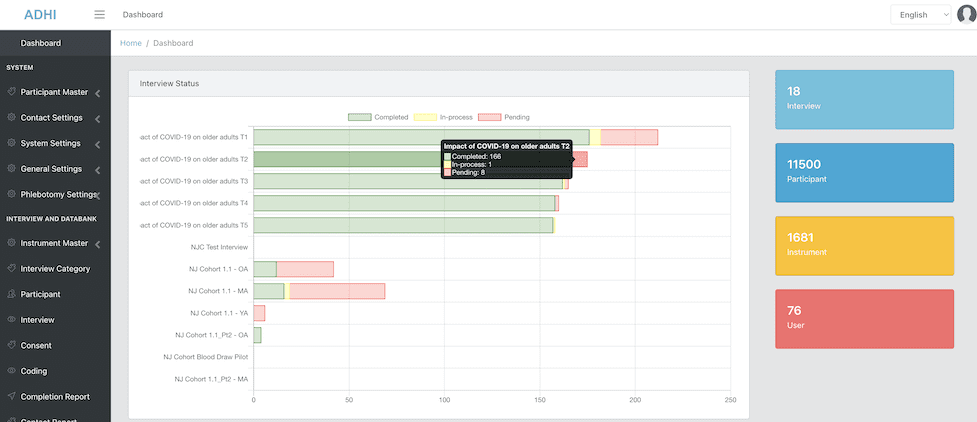

A group of researchers, including Dinesh Mendhe, Stephanie Bergren, and XinQi Dong from the Institute for Health, Health Care Policy and Aging Research, have developed a unique survey platform that aims to enhance the precision of multilingual data collection and minimize selection bias. The new research data collection platform, called ADHI, is equipped with various features such as scheduling, actigraphy management, phlebotomy management, participant management, consent management, contact management, family tree architecture, gift card management, and reporting, which facilitate a more efficient and comprehensive data collection process.
Given the ongoing COVID-19 pandemic, secure and distanced data collection platforms are critical for reaching vulnerable populations. Commonly used electronic data collection systems lack a myriad of critical features, including a modern technology stack, new data encryption and security standards, study workflows, and reporting algorithms. Moreover, these systems do not have multilingual mapping functionalities of survey and consent forms. All of these components ultimately increase selection bias while simultaneously reducing the security and quality of the response data. In order to directly address the aforementioned issues, the IFH team has developed a multilingual and highly secure data management platform. ADHI survey is built using stable, tested, and modular programming frameworks and design patterns targeted at accommodating intricately complex structures of polyglot mapping, a large volume of data, encryption, and granular user authorization. The statistical accuracy, along with the multilingual mapping, is the core highlight of this system. The multilingual function of this platform has the ability to eliminate selection biases while creating a well-balanced cross-section of society. Modern survey design workflows and validation checks ultimately prevent data loss and help reduce data collection errors. The platform design was initiated on April 1, 2020, and has been pilot tested for use in multilingual populations. The currently active application version of the system is capable of supporting in-person and telephone interviews, emailing and SMS survey links to every registered participant, building family tree architecture, online consent management, actigraphy management, phlebotomy management, gift card management, contact management and scheduling, participant management, and reporting. This platform also has built-in report functionality. Additional features are being explored to improve the study coordination and monitoring.
Read more: https://www.ncbi.nlm.nih.gov/pmc/articles/PMC7740837/